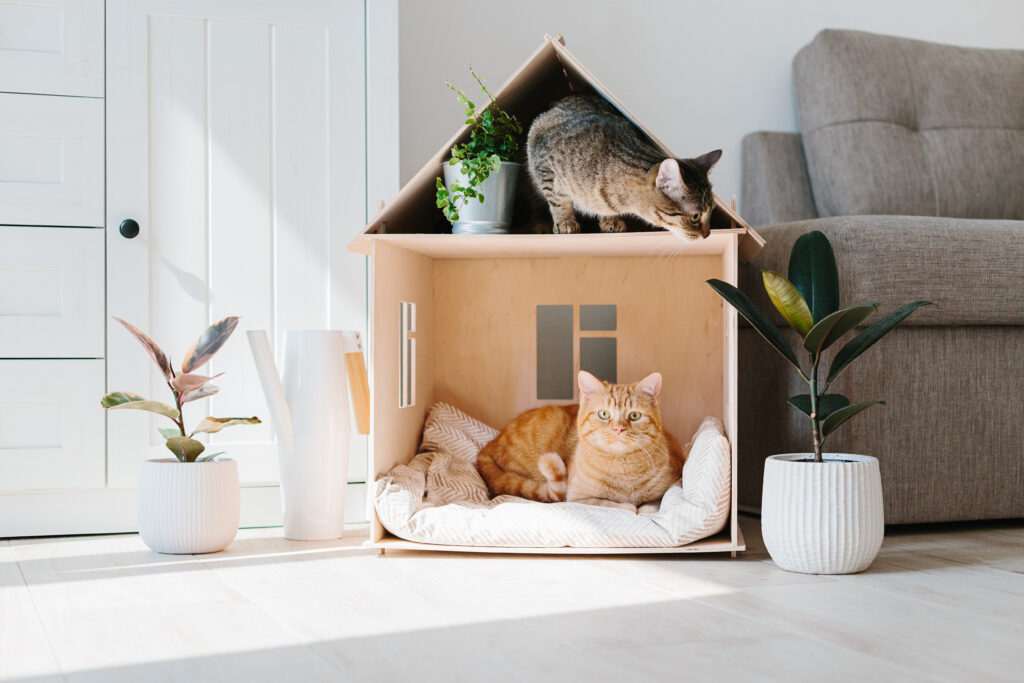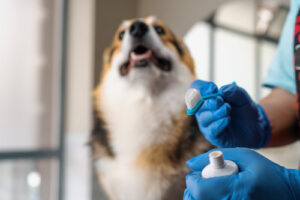If you’re a cat owner, you may sometimes wonder, “Do indoor cats need vaccines?” It’s a great question, and we’re here to provide you with detailed answers. Our team is committed to helping you understand the importance of vaccinations for your indoor cat. If you have more questions or want to schedule an appointment, feel free to give us a call at (713) 526-5881.
Why Vaccinate Indoor Cats?
You might think that because your cat lives indoors, they’re safe from diseases. However, this isn’t entirely true, though we wish it was! Indoor cats can still be at risk for certain diseases, as some bacteria and viruses can be brought into your home from the outdoors via airflow, insects, or being carried in on your shoes and clothes. Therefore, indoor cats still need the protection vaccines provide.
Legal Requirements
There is also the legal requirement for certain vaccines, like the rabies vaccine, which is needed for all cats regardless of their lifestyle. It’s important to comply with these laws to keep your cat and community safe.
What Vaccines Do Indoor Cats Need?
Several vaccines are recommended for indoor cats. These typically fall into two categories, core and non-core.
Core Vaccines
Core vaccines are essential for all cats. They protect against severe, widespread diseases.
Rabies Vaccine
Rabies is a fatal disease that can affect all mammals, including humans. This virus attacks the nervous system, causing inflammation that leads to seizures, hydrophobia, and eventual death. Vaccinating your cat against rabies is a legal requirement in many states, and also a critical step in protecting your family and your pet.
Feline Distemper (Panleukopenia)
Feline Distemper, or Panleukopenia, is a highly contagious viral disease that poses a significant risk to cats, especially kittens. This virus is spread through bodily fluids, feces, and even by fleas from infected cats. Symptoms include high fever, severe diarrhea, vomiting, and dehydration, and can often lead to death, particularly in young or unvaccinated cats.
Feline Herpesvirus and Calicivirus
Feline Herpesvirus and Calicivirus are major causes of upper respiratory infections in cats. These viruses are spread through direct contact with an infected cat or via contaminated objects like food bowls. Symptoms can range from sneezing and nasal congestion to conjunctivitis and, in the case of calicivirus, mouth ulcers.
Non-Core Vaccines
Non-core cat vaccines are given based on a pet’s lifestyle and risk factors. At Sunset Animal Hospital, we offer one lifestyle-based vaccine for Feline Leukemia. Our team will help you determine if your indoor cat needs it.
Feline Leukemia Virus (FeLV)
The Feline Leukemia Virus, or FeLV, is a disease that affects a cat’s immune system and can lead to various forms of cancer. It’s mainly transmitted through saliva during close contact, but also through urine, feces, and the milk of infected cats. In the early stages, infected cats may show no symptoms at all, but over time, they can develop serious health issues like anemia and lymphoma.
How Vaccines Work for Cats
Understanding how vaccines work can help you see their importance. Vaccines contain small parts of the virus or bacteria they protect against. This doesn’t make your cat sick but instead teaches their immune system to recognize and fight off infection.
Building Immunity
After vaccination, your cat’s body produces antibodies to fight the disease. If they ever come into contact with the real disease, their immune system is ready to respond more effectively.
Booster Shots
Some vaccines require booster shots. These boosters are important to maintain your cat’s immunity over time. Your vet will advise you on the schedule for these boosters.
Vaccine Safety and Side Effects
Vaccines are generally safe for cats, but like any medical treatment, they can have side effects. Most side effects are mild and short-lived. They can include soreness at the injection site, mild fever, and lethargy. Serious side effects are rare but can also occur. These include swelling, hives, and injection-site sarcoma. If you notice any unusual symptoms after your cat is vaccinated, contact Sunset Animal Hospital immediately.
Schedule Your Cat’s Vaccinations Today
It’s important to keep your cat’s vaccinations up to date. Their schedule can vary based on their health, lifestyle, and the type of vaccine. At Sunset Animal Hospital, we’ll work with you to create a vaccination schedule that’s tailored to your cat’s needs. Our goal is to keep them safe while ensuring they don’t receive more vaccinations than they truly require. We understand that each cat is unique and requires personalized care.
Call us today at (713) 526-5881 to schedule an appointment!





